When Phoenix, Arizona is met by an immense dust storm, most people tend to stick indoors, but for photographer Jerry Ferguson and pilot Domenick Galindo it is time to go to work.
Jerry is an expert at capturing spectacular weather events, and moments like this are no different despite the vast and treacherous sandstorms, known as haboobs – the scale of which is illustrated below, by a helicopter crew passing in front of another one.
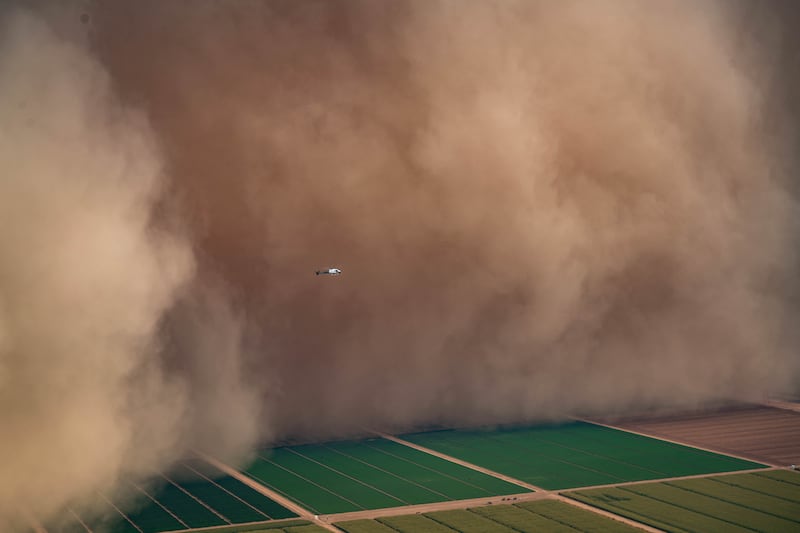
“It is difficult to convey just how massive and threatening these walls of dust are compared to a relatively tiny helicopter unless you experience it firsthand,” Jerry told the Press Association.
Jerry, 39, and his pilot fly at 800ft (244m) off the ground, but recently tried to measure one of the storms by flying to its peak and found it to be an incredible 6,500ft (1,981m) tall.
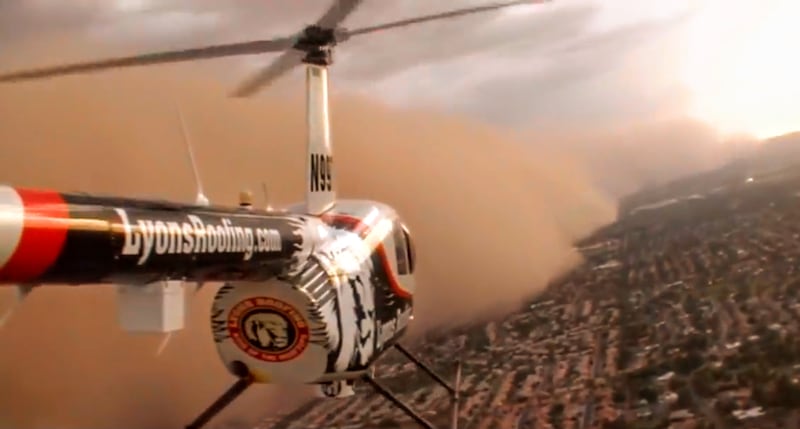
The storms travel at between 20-40mph, so Domenick’s helicopter, with a top speed of over 100mph, can easily outrun it, but the risk should the aircraft get caught inside is significant.
“We are pretty safe as long as we stay ahead of the storm, but if we were to fly into one, it could throw our small helicopter into the ground within seconds,” said Jerry.
“Dust storms can be dangerous, especially for aircraft because they produce strong, turbulent winds and low visibility.
“If one of these storms catches up to us, we just land at the nearest airport, or even in the desert, and let it blow over.”
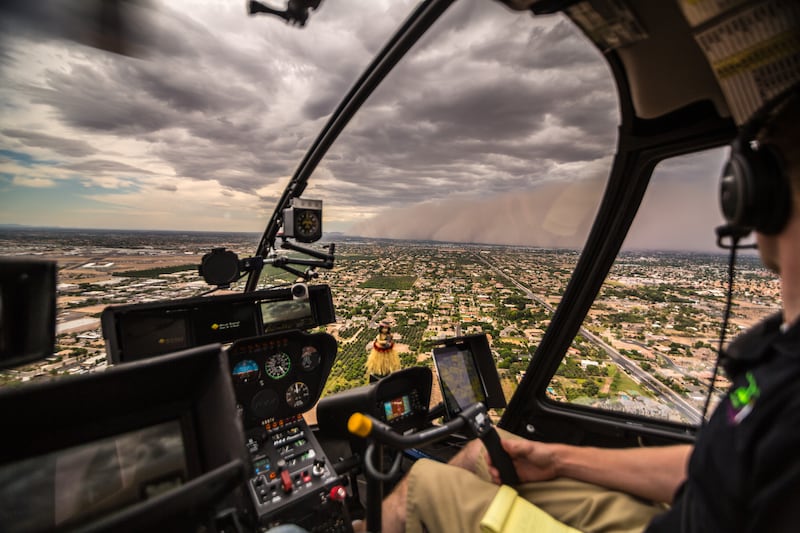
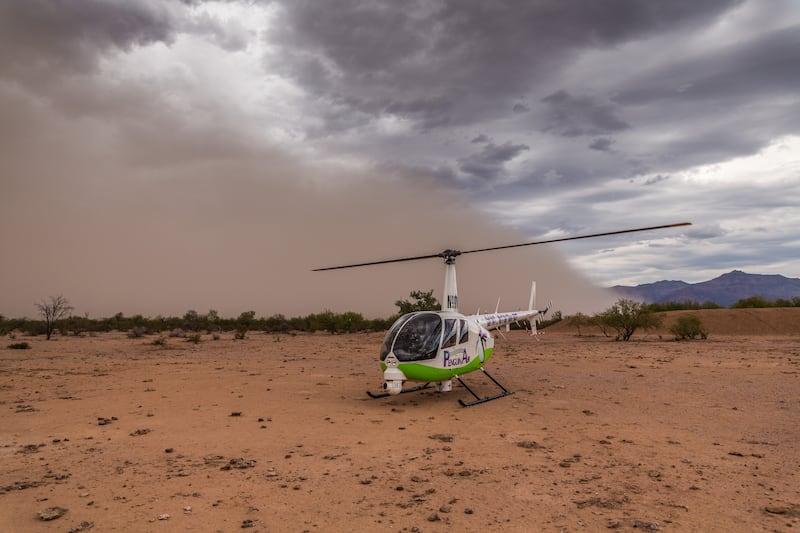
Jerry said haboobs are fairly common in Arizona’s monsoon season, between June 15 and September 30, with “one or two” seen per week.
The haboobs are followed by large thunderstorms which can produce winds of over 60mph.
Such storms are also well within Jerry’s impressive repertoire, with images of titanic rainfall, known as a microburst, and spectacular lightning some of the finest in his collection.
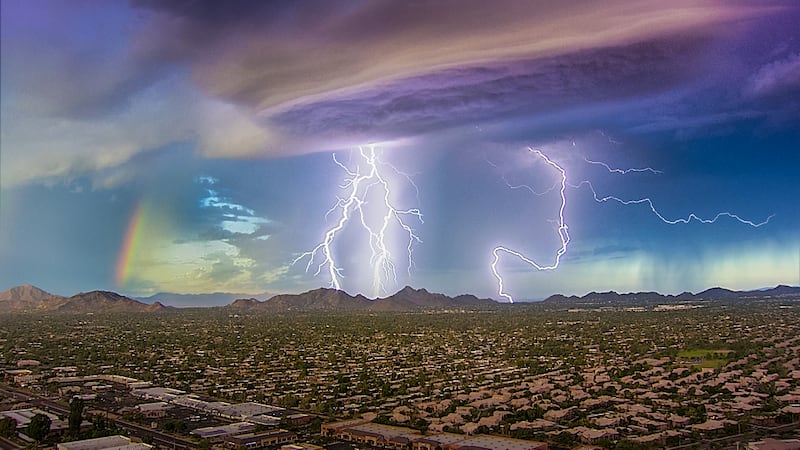
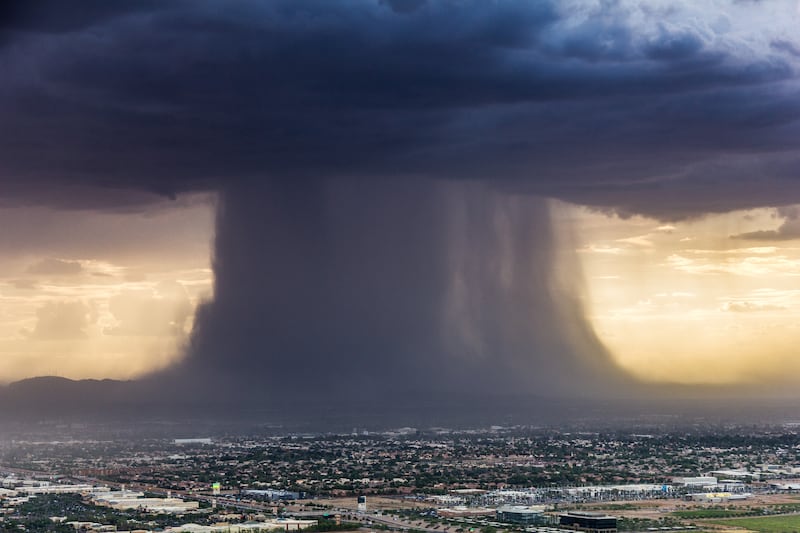
“Arizona weather can be dramatic and change quickly,” said Jerry.
“Photographing it from a helicopter is one of the most unique ways to experience it.”
He’s not wrong.







